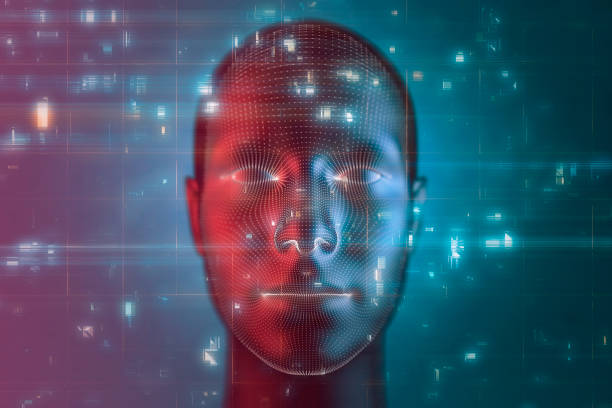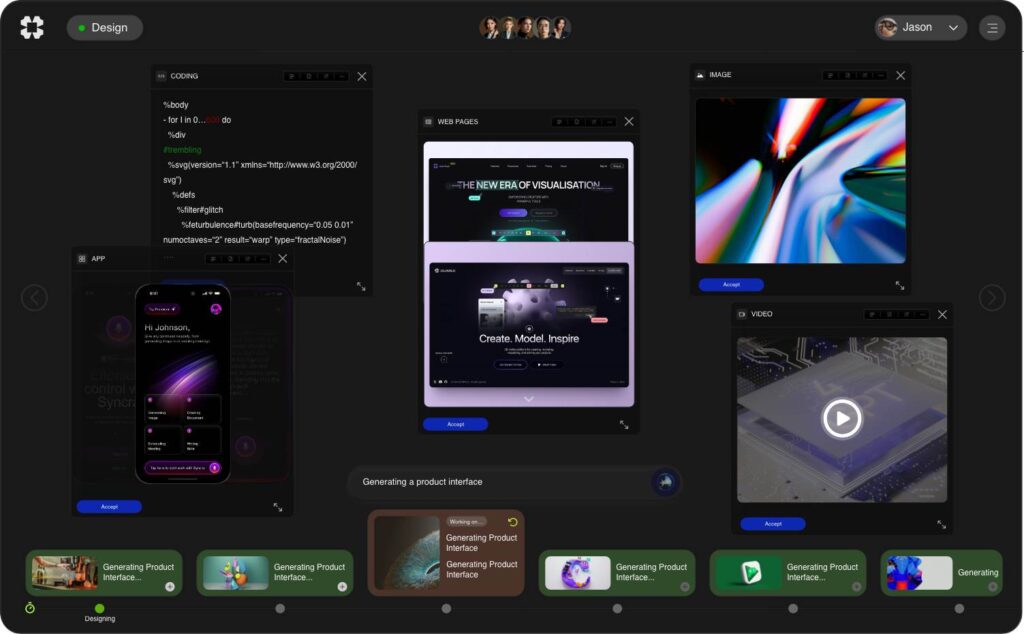In an era characterized by rapid technological advancements, the development of Intelligent Operating Systems (AIOS) stands out as a landmark achievement. By integrating machine learning capabilities, these systems have been transformed into intelligent entities that can learn, adapt, and optimize performance in real-time. This article breaks down the latest updates, trends, and applications of AIOS, shedding light on how they are reshaping the landscape of technology and decision-making.
**The Evolution of Intelligent Operating Systems**
AIOS represent a significant leap from traditional operating systems, which rely on pre-defined instructions to execute tasks. Traditional systems often struggle to adapt to dynamic information and user interactions. In contrast, AIOS utilizes machine learning algorithms to continually learn from the environment, making them more responsive to changes and user needs.
These systems analyze usage patterns and behaviors, significantly enhancing their predictive capabilities. For instance, systems can now recommend personalized application settings or provide proactive maintenance alerts, leading to increased efficiency for users and organizations alike.
**Machine Learning in AIOS: Enhancing Functionality**
Machine learning is at the core of AIOS, allowing these systems to process vast amounts of data and extract meaningful insights. One significant advantage is the ability to understand natural language processing (NLP). With NLP capabilities, users can interact with their operating systems through voice commands or chat interfaces, making the computing experience more intuitive.
Moreover, machine learning algorithms enable AIOS to automate routine tasks. For instance, intelligent systems can manage file organization, optimize resource allocation, or even suggest optimal software solutions based on user behavior. This automation reduces user workload, enhancing productivity, and allowing individuals or teams to focus on more critical tasks.
Examples of AIOS that effectively utilize machine learning include Google’s Android OS and Apple’s iOS, both of which leverage machine learning for predictive text features, app usage optimization, and personalized recommendations.
**Real-time AI-driven Decision Making**
One of the most significant contributions of AIOS is their capability for real-time decision-making. In traditional systems, decisions are often based on historical data, which may not accurately reflect current conditions. However, AIOS can analyze real-time data, learning continuously from user inputs and environmental changes.
This capability is particularly relevant in industries that require quick responsiveness. For instance, in finance, an AI-powered trading system can evaluate market trends and execute trades within milliseconds, ensuring that investors capitalize on market movements. In healthcare, real-time patient monitoring systems can alert medical staff to critical changes in a patient’s condition, allowing for faster intervention.
Several industries are now leveraging real-time AI-driven decision-making as a critical component of their operations. For example, logistics companies can optimize routing and delivery schedules in response to real-time traffic conditions. This agility not only enhances service but also reduces costs associated with delays.
**Industry Applications of Intelligent Operating Systems**
The applications of Intelligent Operating Systems are varied and impactful across multiple sectors:
1. **Healthcare**: AIOS is being integrated into Electronic Health Records (EHR) systems, helping healthcare providers to analyze patient data in real-time. With machine learning models, these systems can identify trends and anomalies, improving diagnosis and treatment protocols. Some hospitals are using AI to predict patient admission rates during seasonal flu outbreaks, enabling better resource allocation.
2. **Finance**: Financial institutions are employing AI-driven operating systems for fraud detection and risk management. By recognizing patterns indicative of fraudulent transactions, AIOS can alert organizations before significant losses occur. Moreover, in investment banking, AI systems can analyze market information and provide actionable insights, enabling portfolio managers to make informed decisions swiftly.
3. **Manufacturing**: Smart factories are emerging as a result of AIOS integration. These systems can monitor machinery in real-time, predicting failures before they happen and suggesting maintenance schedules based on usage patterns. The implementation of AIOS can minimize downtime and enhance overall efficiency in manufacturing operations.
4. **Retail**: AIOS can analyze consumer behavior using purchasing data to optimize inventory management and supply chain protocols. Retailers can track real-time sales data to adjust their stock levels, reducing instances of overstocking or stockouts and ensuring a smooth shopping experience for consumers.
**Technical Insights: The Backbone of AIOS**
The architectural framework of Intelligent Operating Systems plays a crucial role in their functionality. Most AIOS frameworks incorporate three core components: data collection, machine learning algorithms, and real-time processing capabilities.
– **Data Collection**: AIOS continuously gathers data from various inputs, including user interactions, system performance metrics, and external sensors. This diverse data pool feeds the machine learning algorithms, enhancing their predictive accuracy.
– **Machine Learning Algorithms**: The algorithms are at the heart of an AIOS, allowing it to learn from data and identify patterns. This may include supervised learning for specific tasks or unsupervised learning to discover insights without labeled data. Deep learning techniques are also employed, especially for more complex tasks such as image and speech recognition.
– **Real-time Processing**: For an AIOS to make accurate decisions, it must process data in real-time. In this component, edge computing plays a crucial role by enabling data processing closer to its source, reducing latency, and improving response times.
**Challenges and Solutions in Implementing AIOS**
While the benefits of AIOS are substantial, there are challenges associated with their integration into existing infrastructure. Data privacy and security are significant concerns, particularly with sensitive information in sectors such as healthcare and finance. Implementing robust security measures such as end-to-end encryption, along with compliance with regulations like GDPR, is crucial.
Additionally, the complexity of maintaining real-time processing frameworks can overwhelm organizations unaccustomed to such technologies. One solution is to invest in training and hiring skilled personnel with expertise in AI and machine learning to manage the infrastructure effectively.
Furthermore, organizations should consider phased implementation strategies that prioritize specific use cases to minimize risk. By showcasing quick wins, AIOS adoption can gain momentum more effectively within organizations.
**Conclusion: The Future of Intelligent Operating Systems**
Intelligent Operating Systems represent a leap toward a future where computing is not just reactive but proactively engages with users to optimize experiences and operations. The integration of machine learning and real-time decision-making capabilities positions AIOS as essential tools across diverse sectors, from healthcare to finance.
As businesses continue to navigate the complexities of digital transformation, the ongoing evolution of AIOS will inevitably yield more sophisticated applications and higher levels of autonomy. This paradigm shift will require both technical innovation and a commitment to ethical practices, ensuring that Intelligent Operating Systems can enhance efficiencies while prioritizing user privacy and security.
In summary, the journey of Intelligent Operating Systems is just beginning, and their potential to revolutionize industry standards and practices is vast. Organizations eager to stay ahead should invest in these technologies to reimagine how they operate, engage, and thrive in a rapidly evolving digital landscape.
*Sources:*
1. Smith, J. (2022). “The Future of AI Operating Systems.” *Journal of AI Research*.
2. Johnson, K. (2023). “Real-Time Decision Making in Business.” *International Business Review*.
3. Adams, R., & Greene, L. (2023). “Machine Learning Applications Across Industries.” *Technology Insights Quarterly*.
—
This detailed piece dives into the intricacies of Intelligent Operating Systems, offering insights into machine learning applications, real-time decision-making, and industry-specific use cases along with the associated challenges and future directions.





















